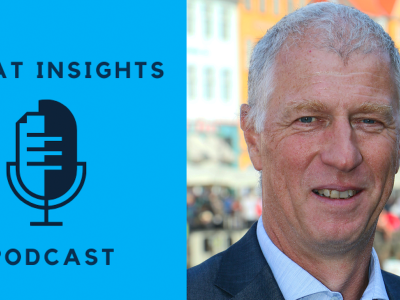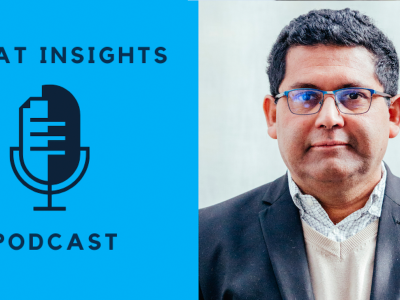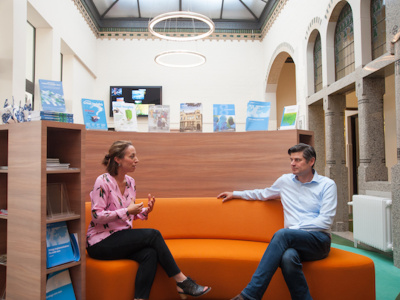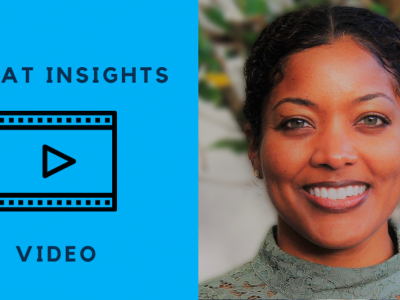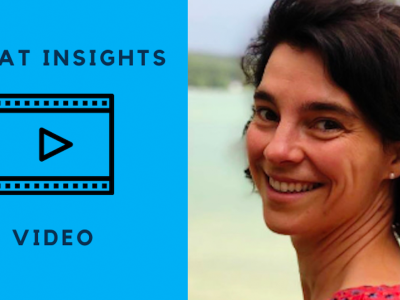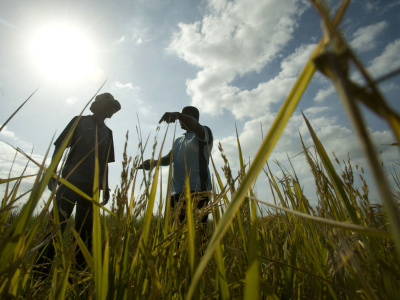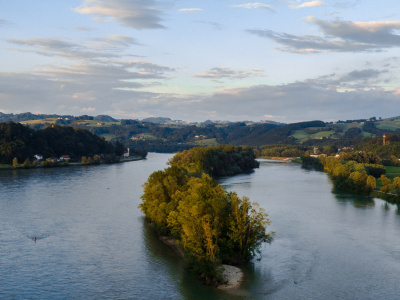
Tackling climate change is a social struggle
ECDPM’s Director Carl Michiels speaks with Belgium’s Minister of Development Cooperation and Major Cities Policy, Meryame Kitir. Topics were this past summer’s wake-up call in Europe on the costs of climate change, Belgium’s higher development budget for climate action and focal projects in a number of partner countries.
What are Belgium’s key positions in the run-up to COP26? What can we expect you to focus on in particular?
Let me start by saying that the climate challenge is in the foreground more than ever. The events of this summer have unfortunately shown us why it is important to invest in the climate challenge. The call to action is becoming more concrete, as people understand that it is no longer a far-from-my-bed show, but something that affects us all. In my view, the climate challenge is also a social struggle, because it is unfair that those who emit the least are the ones who suffer the most. So I am glad there is a strong awareness that we need to move forward with climate finance.
As Minister of Development Cooperation I always expected to be confronted with the consequences of climate change during my missions abroad. Little did I know that I would be confronted with that crisis first in my own backyard. During my recent visit to the flooded areas in Belgium, it became very clear that we are all fighting the same struggle: people had lost everything and suddenly found themselves without housing, energy and information. The impact of climate change is destroying everything that people have built up, and we have to halt it together.
The current government has big ambitions in the field of climate action and green transition. We decided to phase out nuclear power in our country by 2025, and are in the process of closing at least five of our seven nuclear plants. The Recovery and Resilience Plan recently endorsed by the European Commission has disbursed €5.9 billion, of which €3 billion will be invested in green projects. We want to be climate neutral by 2050 and achieve a 55% reduction by 2030. But beyond the nuclear phase-out, we will also have to make the switch to producing new green energy in Belgium.
On the international front, we will increase our climate funding to €100 million, 40% more than the previous years. For example, we are going to invest more in regions, such as the Sahel region, instead of countries. Also, we are going to pay more attention to the climate in our bilateral contacts, for example, with Palestine, where we are going to focus on establishing a new recycling industry and help them clean up the heavily polluted river in the Gaza Strip.
Does Belgium have European allies in these ambitions?
At a gathering organised by Enabel [the Belgian Development Agency] this morning, I spoke with Koen Doens of the European Commission and representatives of the African Union and it’s gratifying to see that the climate challenge is also high on their agenda. Furthermore, not only politicians but also citizens are starting to see the importance. Look at the many demonstrations by our young people. They are demanding a green future – not merely asking us to recalibrate choices between trees and people. My colleagues and I are working hard to realise this call to action. It is urgent, but not yet too late.
United Nations reports conclude that it has never been as hot in the last 125,000 years as it is now, increasing the likelihood of extreme weather conditions. It is very serious but shows that we need to change course. We used to think that Africa, which only contributes 4% of global emissions, would bear the brunt of climate change impacts, but for example, in France, 14,000 people died in 2003 because of the extreme heat. The changes we must make will have a huge impact on our lives. And, everything is interlinked; not addressing the climate will result in more droughts, and more farmers losing their harvest, which will lead to food shortages. This will cause conflicts and people fleeing their homelands. So these impacts indirectly connect the world. Just as COVID-19 does not stop at borders, the climate challenge does not stop there either. The events of July made everyone realise that even more must be done.
I also understand that there are sometimes fears about how we are going to tackle this crisis, but there are many clever ways to deal with it, without increasing energy costs too much.
What are Belgium’s priorities in Africa, especially when it comes to climate adaptation?
In our climate portfolio we have opted for a regional approach in two areas: first on climate and second on social protection. The portfolio allocates €50 million over the next five years to projects in the Sahel region. Together with local administrations and communities, including farmers, we want to look at what is needed to take on the climate challenge. Farmers, for instance, will be working on rainwater collection to make them more resilient to a changing climate. This is not something we can impose, we have to do it together with local partners.
How can the European Green Deal help Belgium achieve its climate objectives?
The flooding in Belgium is – ironically – ‘helping’ us now because it was a huge wake-up call. Nobody expected it. The climate crisis was not tangible for many people, and many have seen the transition to green energy or building resilience as costly. But, people are starting to understand that, in the long run, addressing the crisis will actually make life better and healthier, and much less costly. We will face fewer food shortages, famines, floods and terrorism.
Do you think this new realisation will help the European Green Deal achieve its ambitions, which are rather high?
I believe one has to be ambitious in life to get things done. We are now, with our administration, having discussions on how we can turn the Green Deal policies into concrete actions. The date of COP26 is therefore very timely. We cannot afford to do nothing, it is time to act now.
You already gave us one example, but what other activities are being undertaken in countries?
Apart from the project in Palestine mentioned earlier, we are working with Mozambique, which is facing major challenges. That project focuses on smart irrigation systems and 100% renewable energy. Here, too, we want to help the population protect themselves against droughts.
In Congo, we will support the Central African Forest Initiative, which is protecting the rainforest from logging. On that, we are partnering with local populations that depend on the forests for their livelihood.
A new aspect here is that we try to create jobs with renewable energy. The International Labour Organisation (ILO) has projected that limiting global warming to 2°C could create 24 million new jobs. Contrasting this with the 6 million jobs that would actually disappear, that would be a win.
Through social protection, you can make people self-reliant. Adaptation is good to make people resilient to climate change. Some 80% of Africans work informally. We want to help them become self-reliant, and make a job out of it.
Funding for your climate portfolio has been raised to €100 million, as you mentioned. However, some calculations indicate that based on Belgium’s national income we should actually contribute €1 billion. We are still far from that. Is growth still possible?
Do we need to do more? Yes! Do we want to? Yes! But the reality is we have just come out of a COVID-19 period that has put a lot of pressure on our budget. In spite of that, we have still managed to increase the climate budget to the current €100 million. It is still not enough, but it is nevertheless an important step forward, especially since it provides 40% more to spend than under the previous government. Mind you, within this €100 million, there is also €12 million in funding that the federal government has decided to contribute on top of the existing budget.
You work mainly with local partners. How is local ownership being ensured?
We focus on cooperation, with the partners at the governmental level, but also close to the people and in communities to create support. We have help from NGOs and multilateral partners. In Belgium, we have our so-called ‘common strategic frameworks’ that require NGOs to work together. The new Team Europe initiatives also combine efforts, so we are not only aware of each other’s projects but can also join forces. Cooperation is the motto. We are complementary to each other, and by joining forces we can achieve more.
Is Team Europe creating new momentum in development cooperation?
I see that it is gaining momentum. More partners are looking to work with each other. For example, take the social protection portfolio. Social protection has always been a very important priority to me. I’m very glad we are part of Team Europe. This gives us the opportunity to put the importance of social protection also on the agenda of other Member States. The Team Europe approach does encourage member states to work together.
What is your hope for the outcome of COP26?
I hope that we take concrete actions, and give our youth the prospect of a green, healthy and positive future. We owe it to them.
About Meryame Kitir
Ms Meryame Kitir is Belgium’s Federal Minister of Development Cooperation and Major Cities Policy since 2020. At the age of 19, she started working in the Ford factory in Genk for more than a decade, while she successfully built her way up in the worker’s union to ultimately become a union representative. In 2006, she was elected to become a Municipal Councillor of the city of Genk before becoming leader for the socialist party’s parliamentary group between 2015-2020.
Read the full magazine issue
This article appears in the climate edition of ECDPM's Great Insights magazine – check out the full issue or the other articles and multimedia below.







